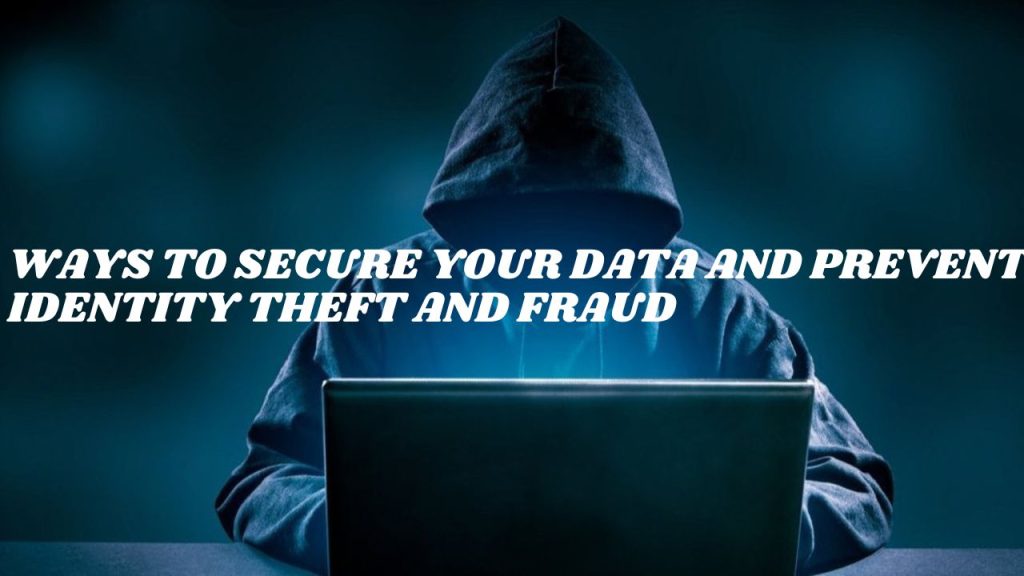In today’s digital age, the threat of identity theft and fraud looms larger than ever before. Cybercriminals are constantly finding new ways to exploit vulnerabilities in our online and offline lives, making it crucial for individuals to take proactive steps to protect their personal data.
It’s become nearly impossible to imagine a life without the Internet, social media, and smartphones.
To put it into perspective, people are online for around 24 hours a week today which is two times the amount of time they used to be online a decade ago, and the average amount of time that global Internet users spend on social media today is also more than 2 hours
therefore it comes as no surprise that criminals are going to prey on those who are not tech-savvy and so we are all under constant threat of malware attacks, phishing emails, identity theft. Every day I hear how someone’s identity has been compromised because they didn’t tale basic steps to prevent fraud. So I thought I would put together this quick must-have’s to reduce your risk from online attacks, While technology plays a significant role in data security, we must not underestimate the power of human-centric strategies. In this blog post, we’ll explore ways to secure your data from identity theft and fraud, focusing on human behaviors and practices that can make a significant difference.


Educate Yourself
Knowledge is your first line of defense. Stay informed about the latest scams, phishing techniques, and security best practices. Regularly update yourself on emerging threats to better identify potential risks.
Lookout for Phishing Email Scams
Phishing email is one of the most common online banking and PayPal scams that you should be aware of. In this, a cybercriminal sends you an email from an address that looks like the official address of a financial institution, like your bank, for instance. They try to raise an alarm by saying that someone is trying to access your online banking account and you must change the password for the same to prevent unauthorized access.
They usually share a link that they say can be used to visit the bank’s website for password updating. However, it is a malicious link that is meant to store your real password and share it with the attacker. In this way, you are made to reveal your credentials that are used by the attacker to access your bank account and transfer the money into theirs.
Use Caution on Public Wi-Fi
Avoid accessing sensitive accounts or conducting financial transactions on public Wi-Fi networks. Hackers can intercept your data on unsecured connections, potentially compromising your information.
Public hotspots are open to everyone which is why hackers often target them to steal someone’s private information who uses the connection. Let’s say that you are in a café waiting for your coffee and accessing your bank account to transfer funds to your friend. A hacker who is in the same café can use advanced tools and hacking techniques to break into the connection and monitor your phone’s online activities.
It’s strongly recommended that you use public Internet networks and devices only for general web surfing. If you want to access your social media account, bank account, or some other important account, then you should turn off the connection and use your phone’s own connection instead.
It’s also a good idea to use a VPN app when you access the network as that can prevent unwanted entities from tapping into your connection.
Strengthen Your Passwords
Create strong, unique passwords for each online account. Avoid using easily guessable information like birthdays or names. Consider using a reliable password manager to generate and securely store complex passwords.
Keep System Up to Date
There is a reason why mobile and computer manufacturers roll out OS and other software updates every now and then. Besides bug fixes, each update has an enhancement that closes off newly discovered vulnerabilities. These enhance also improve productivity, system performance, and ease of use of the app.
So, whenever you receive a new update, don’t hold it off, and install it as soon as possible and avoid critical security vulnerabilities.
Install Antivirus Programs
It’s 2023 – you still don’t have a decent anti-virus program? HOW?
You can’t protect your devices from viruses and malware unless you install top-quality antivirus programs on them first. So, you need to find the best antivirus for iPhone or Android phone (whichever you are using) and computer/laptop. There a wide range of programs on the Internet that you can check out. However, consider the following factors when you pick one:
- Support: The program should support all the devices viz. mobiles and laptops/desktops
- Features: It should give protection against all the major online threats like malware, trojan, worm, rootkit programs, viruses, spyware, etc.
- Pricing: Antivirus programs are usually not that expensive. However, you should still compare the prices of some of the best options so that you can get a bang for your buck
Enable Two-Factor Authentication (2FA)
Whenever possible, enable MFA for your online accounts. This adds an extra layer of security by requiring a second form of verification beyond your password.
Guard Personal Information
Be cautious about sharing personal information on social media and other public platforms. Cybercriminals often use this information to craft convincing phishing attacks or impersonate you.
Secure Your Wi-Fi Network
Protect your home network with a strong password and encryption. This prevents unauthorized access and data interception by potential hackers.
Securing your data from identity theft and fraud is not solely the responsibility of advanced technology or cybersecurity experts. Individuals can play a crucial role in safeguarding their personal information by adopting a vigilant and proactive approach. By following these 10 human-centric strategies, you can significantly reduce the risk of falling victim to identity theft and fraud. Remember that the best defense combines technological solutions with responsible human behavior. Stay informed, stay cautious, and stay secure.

